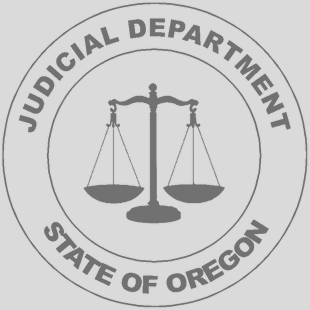Related Research Articles
Measure 11, also known as "One Strike You're Out", was a citizens' initiative passed in 1994 in the U.S. State of Oregon. This statutory enactment established mandatory minimum sentencing for several crimes. The measure was approved in the November 8, 1994 general election with 788,695 votes in favor, and 412,816 votes against.
The Canadian Jewish Congress was, for more than ninety years, the main advocacy group for the Jewish community in Canada. Regarded by many as the "Parliament of Canadian Jewry," the Congress was at the forefront of the struggle for human rights, equality, immigration reform and civil rights in Canada.
Robert Edward Borbidge is a former Australian politician who served as the 35th Premier of Queensland from 1996 to 1998. He was the leader of the Queensland branch of the National Party, and was the last member of that party to serve as premier. His term as premier was contemporaneous with the rise of the One Nation Party of Pauline Hanson, which would see him lose office within two years.

The Canadian Judicial Council is a federal body which oversees federal judges in Canada.
A law enforcement officer (LEO), or peace officer in North American English, is a public-sector employee whose duties primarily involve the enforcement of laws. The phrase can include police officers, municipal law enforcement officers, special police officers, customs officers, state troopers, special agents, secret agents, special investigators, border patrol officers, immigration officers, court officers, probation officers, parole officers, arson investigators, auxiliary officers, game wardens, sheriffs, constables, corrections, marshals, deputies, detention officers, correction officers, and public safety officers. Security guards are civilians and therefore not law enforcement officers, unless they have been granted powers to enforce particular laws, such as those accredited under a community safety accreditation scheme such as a security police officer.

Hans Arthur Linde was a German Jewish American legal scholar and Oregon Supreme Court justice.

The judiciary of South Africa is the body of judges and magistrates who sit in the courts of South Africa. The judiciary is an independent branch of the government, subject only to the Constitution of South Africa and the laws of the country. The Judiciary interprets the law of South Africa, using as the basis of its interpretation the laws enacted by the South African Parliament as well as explanatory statements made in the legislature during the enactment.

The government of the U.S. state of Oregon, as prescribed by the Oregon Constitution, is composed of three government branches: the executive, the legislative, and the judicial. These branches operate in a manner similar to that of the federal government of the United States.

The Department of Oregon State Police (OSP) is a law enforcement agency of the U.S. state of Oregon. The OSP enforces all of Oregon's criminal laws and assists local law enforcement agencies. Travis Hampton has served as Superintendent since July 1, 2016.
The Coalition for the International Criminal Court (CICC) is an international network of NGOs, with a membership of over 2,500 organizations worldwide advocating for a fair, effective and independent International Criminal Court (ICC). Coalition NGO members work in partnership to strengthen international cooperation with the ICC; ensure that the court is fair, effective and independent; make justice both visible and universal, and advance stronger national laws that deliver justice to victims of war crimes, crimes against humanity and genocide. The CICC Secretariat is hosted by the World Federalist Movement-Institute for Global Policy (WFM-IGP) and has offices in New York City, near the United Nations (UN), and in The Hague, The Netherlands. Additionally, the CICC has regional offices in Belgium, and Peru.

The Oregon Attorney General is a statutory office within the executive branch of the state of Oregon, and serves as the chief legal officer of the state, heading its Department of Justice with its six operating divisions. The Attorney General is chosen by statewide partisan election to serve a term of four years. The incumbent, Ellen Rosenblum, was sworn in on June 29, 2012, replacing John Kroger, a Democrat who was elected in 2008 and resigned six months before the end of his term to become President of Reed College. She was re-elected in 2016.
The Oregon Court of Appeals is the state intermediate appellate court in the US state of Oregon. Part of the Oregon Judicial Department, it has thirteen judges and is located in Salem. Except for death penalty cases, which are reserved to the Oregon Supreme Court, and tax court cases, it has jurisdiction to hear all civil and criminal appeals from Oregon circuit courts, and to review actions of most state administrative agencies. The 13 judges of the court are chosen by the people in statewide nonpartisan elections to six-year terms, and have as their administrative head a Chief Judge appointed from their number by the Chief Justice of the state Supreme Court.

The Justice Juanita Kidd Stout Center for Criminal Justice, is a courthouse in Philadelphia, Pennsylvania. It is the main criminal courthouse of the First Judicial District of Pennsylvania, housing the Criminal Section of the Philadelphia Court of Common Pleas and the Criminal Division of the Philadelphia Municipal Court. The CJC is a 17-story steel-framed building completed in 1994 in order to alleviate pressure from courtrooms located in Philadelphia City Hall. The center is located at 1301 Filbert Street.
The federal government of Iraq is defined under the current Constitution, approved in 2005, as an Islamic, democratic, federal parliamentary republic. The federal government is composed of the executive, legislative, and judicial branches, as well as numerous independent commissions.

The Utah Children's Justice Center (CJC) is a program of the Utah Attorney General's Office to coordinate investigation and prosecution of child abuse, especially child sexual abuse. There are 22 CJC's in the state of Utah. They were created to provide a child friendly environment for interviews and exams of child victims as well as to provide support and centralized resource referrals to victim's families.

The Oregon Judicial Department (OJD) is the judicial branch of government of the state of Oregon in the United States. The chief executive of the branch is the Chief Justice of the Oregon Supreme Court. Oregon’s judiciary consists primarily of four different courts: the Oregon Supreme Court, the Oregon Tax Court, the Oregon Court of Appeals, and the Oregon circuit courts. Additionally, the OJD includes the Council on Court Procedures, the Oregon State Bar, Commission on Judicial Fitness and Disability, and the Public Defense Services Commission. Employees of the court are the largest non-union group among state workers.
Floyd Prozanski is an American Democratic politician who is a current member of the Oregon State Senate, representing the 4th District, since 2004. He previously served in the Oregon House of Representatives, from 1995 through 2000 and again for the 2003 session. He resigned from the House in December 2003 to accept appointment to the Senate seat that had been vacated by Tony Corcoran. He won election to the seat in November 2004.
Citizen's Justice Committee is an Indian umbrella organization of various human rights organizations and is known for pro bono representing the 1984 anti-Sikh riots victims in their legal battle to gain justice.

Justice Action is a not-for-profit community organisation based in Sydney, Australia. Justice Action focuses on abuses of authority in the criminal justice and mental health systems in Australia. Founded in 1979 as Prisoner Action, Justice Action is independent of the Australian government and is funded by voluntary donations and the work of the social enterprise, Breakout Media Communications. Justice Action's coordinator is Brett Collins, an ex-prisoner who began with the organisation in 1979 as co-founder. Alongside Brett, Justice Action is run by a team of interns who are university students in law and other degrees.
The Criminal Justice Commission (CJC) were established by the Criminal Justice Commission Act No 14 of 1972, to serve as both a public inquiry and a tribunal to pass sentence. The key aspect of the CJC was that it could accept evidence that would have otherwise be inadmissible under the Evidence Ordinance which governs evidence applicable in court, the shift of burden of proof on the accused and the finding or sentence of the tribunal becoming final and would not be appeal-able. Two Criminal Justice Commissions were formed, the first in 1972 to try the perpetrators of the 1971 JVP insurrection and the second in 1975 to prosecute exchange control offences. The CJC was a controversial legislation and was repealed in 1977 under the Criminal Justice Commissions (Repeal) Law, No. 12 of 1977. General amnesty was issued to all convicted under the two commissions.